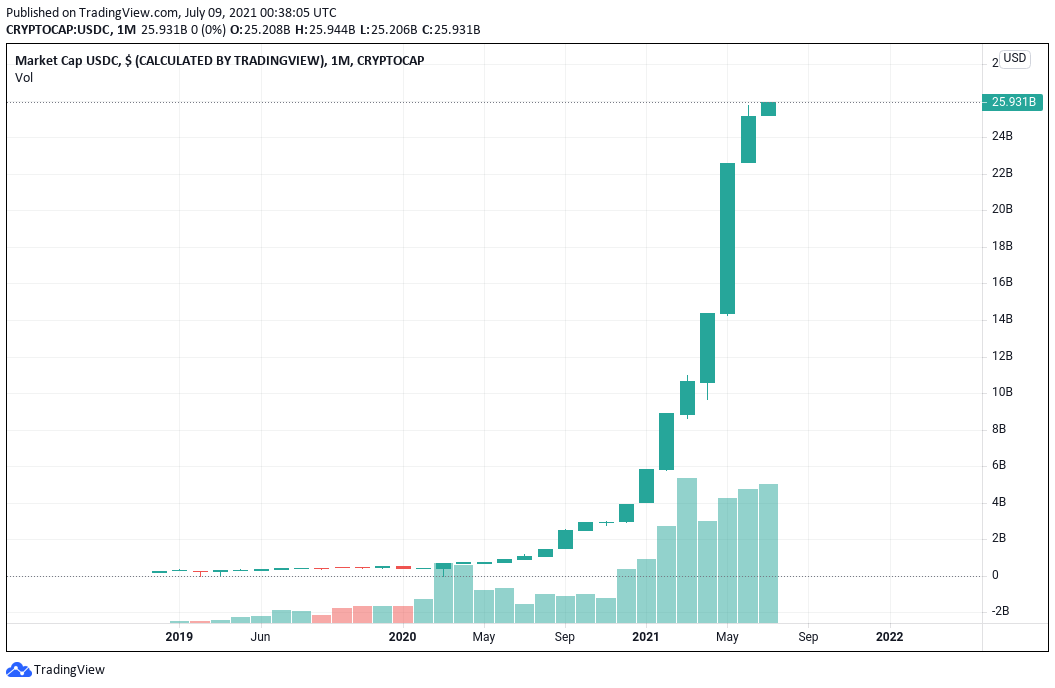Circle's IPO brings all USDC Central Consortium members to the public market. The second-largest U.S. dollar stablecoin, which is jointly managed with crypto exchange Coinbase, has gained strong popularity and is gradually becoming a competitor for Tether (USDT).
Circle, the issuer of the USDC stablecoin, will go public in a merger with special purpose entity Concord Acquisition Corp - a publicly traded special purpose acquisition corporation (SPAC). The deal is valued by Circle itself at $4.5 billion. It is expected to close in Q4 2021.
Circle IPO aims to create transparency
The merger comes just weeks after the company received a $440 million funding round from investors including Fidelity, Marshall Wace and Willett Advisors - the investment arm for Michael Bloomberg's personal and philanthropic wealth. The increased transparency brought about by the IPO should alleviate some of the fears surrounding private stablecoins.

The desire to go public stems from the growth USDC has experienced over the past year. USDC is currently the eighth largest cryptocurrency by market cap. Among stablecoins, its market value is second at $26 billion, behind Tether (USDT) at $62 billion. A company presentation on the SPAC deal cites an expected USDC circulation of $190 billion by 2023 - a seven-fold growth from its current market cap.
Trusted pioneer
In a statement, Concord CEO Bob Diamond called Circle the true pioneer of trusted digital currencies, which are an increasingly important part of the global financial system. According to CEO Jeremy Allaire, Circle saw a great opportunity to both raise capital and build a significant public company with transparency and visibility to institutions.
"Through this strategic transaction and the resulting IPO, we are taking a big step forward. It provides capital and relationships we need to build an Internet financial services company of global scale. This is designed to help companies engage in a more open, inclusive and effective global economic system." - Jeremy Allaire, CEO Circle
When asked about the threat that digital central bank currencies (CBDCs) could pose to stablecoins like USDC, the Circle CEO pointed out that advances in the Internet have always been led by private companies, not governments. Allaire also does not feel it makes sense for the U.S. government to try to compete with China's digital yuan.




